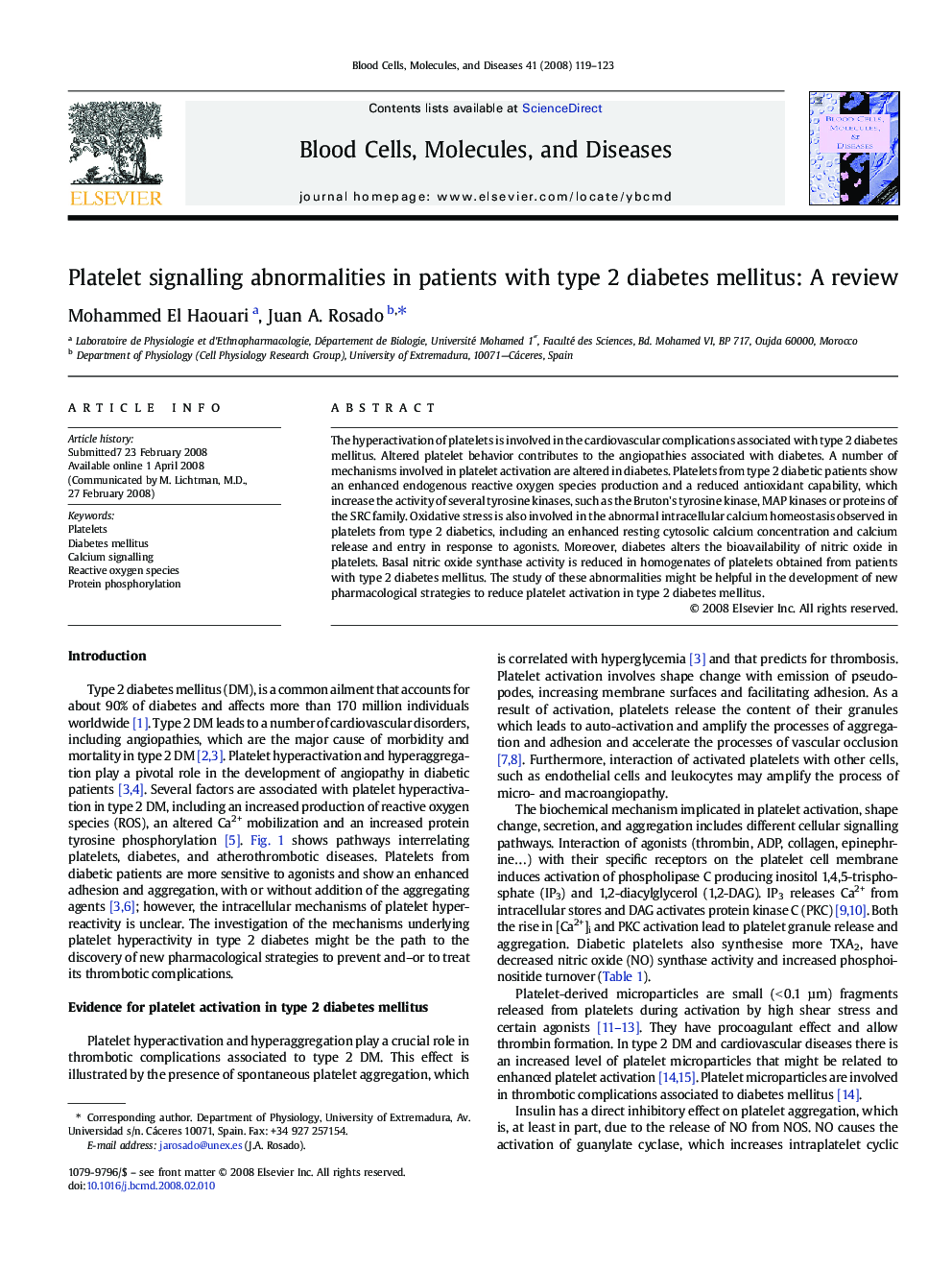| Article ID | Journal | Published Year | Pages | File Type |
|---|---|---|---|---|
| 2827810 | Blood Cells, Molecules, and Diseases | 2008 | 5 Pages |
The hyperactivation of platelets is involved in the cardiovascular complications associated with type 2 diabetes mellitus. Altered platelet behavior contributes to the angiopathies associated with diabetes. A number of mechanisms involved in platelet activation are altered in diabetes. Platelets from type 2 diabetic patients show an enhanced endogenous reactive oxygen species production and a reduced antioxidant capability, which increase the activity of several tyrosine kinases, such as the Bruton's tyrosine kinase, MAP kinases or proteins of the SRC family. Oxidative stress is also involved in the abnormal intracellular calcium homeostasis observed in platelets from type 2 diabetics, including an enhanced resting cytosolic calcium concentration and calcium release and entry in response to agonists. Moreover, diabetes alters the bioavailability of nitric oxide in platelets. Basal nitric oxide synthase activity is reduced in homogenates of platelets obtained from patients with type 2 diabetes mellitus. The study of these abnormalities might be helpful in the development of new pharmacological strategies to reduce platelet activation in type 2 diabetes mellitus.
